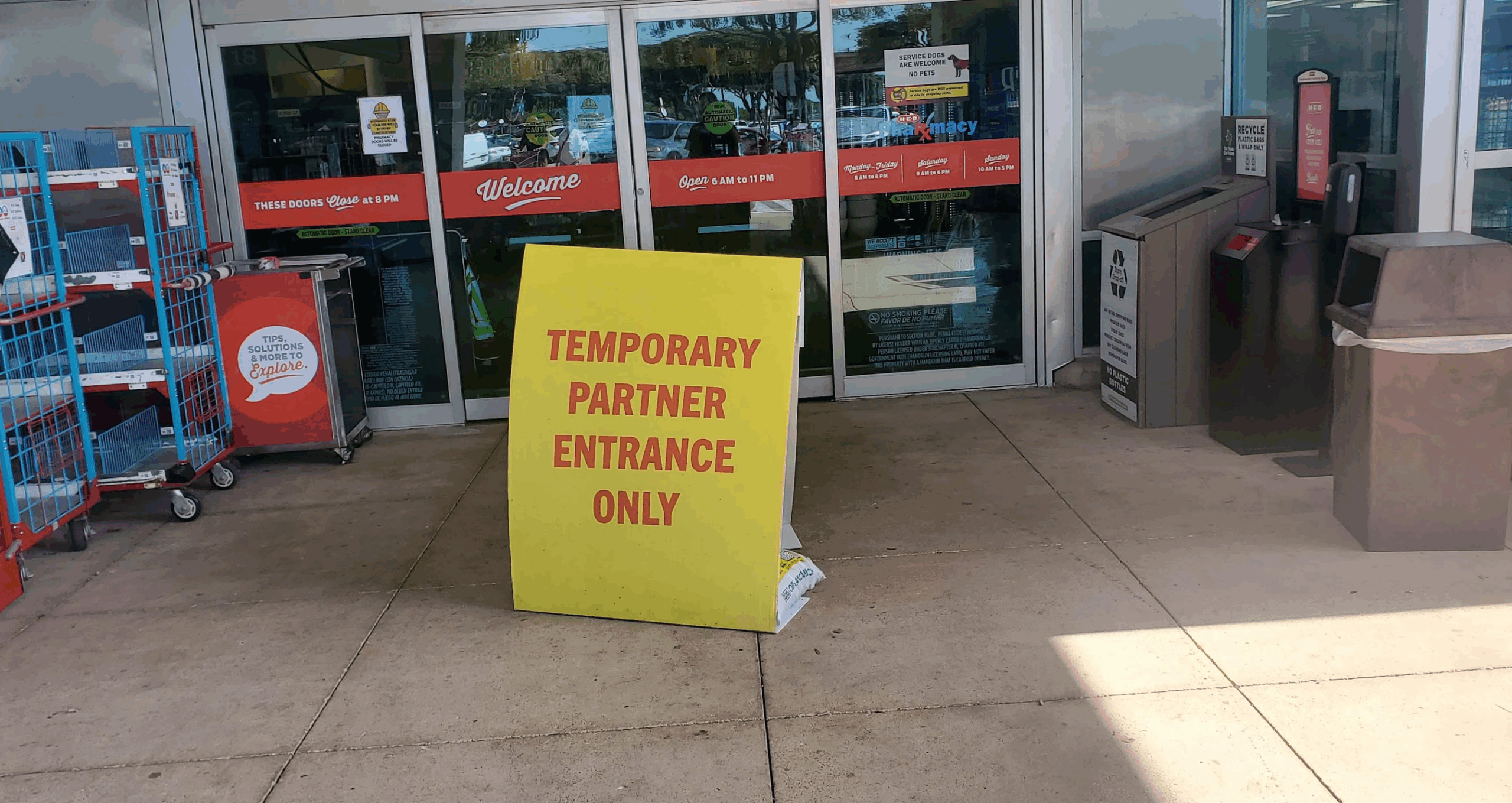Understanding AI Adoption Through Human Patterns
Walking up to the sliding doors at the store, I saw the now-familiar bold yellow sign:
TEMPORARY PARTNER ENTRANCE ONLY.
It struck me—not because the words were unclear, but because the implications were eerily familiar.
Was this really temporary? Or was it a psychological staging area, easing people into something more permanent?
That sign got me thinking about something much bigger: AI.
Adaptation… On a Timer
Humans resist sudden change.
But feed it slowly—add signs, soften language, call it “experimental,” “beta,” or “assistant”—and we’ll often adapt.
In tech, especially with AI, this is a pattern:
First, the tools appear on the sidelines. Then they become “optional helpers.”
Soon, they’re quietly essential—and suddenly, you’re not just using AI… you’re building on it.
It’s not deception.
It’s strategy.
Maybe even kindness.
But it’s also a mirror.
The Real Trigger? Perceived Fairness
People can adjust to monumental shifts—if they feel informed and included.
But roll out AI in a way that favors the few…
Let some people keep using the “old door” while others get rerouted…
Remove options without transparency or warning…
That’s when resistance explodes.
It’s not just change that sparks friction.
It’s the sense of imbalance.
In the world of AI, fairness, transparency, and clarity are the core UX.
When we sense that the system is working for some but not with us, we revolt.
Like Smoke in a Room…
This all hit me again when I got home.
I opened my front door and was immediately hit by a wall of smoke.
Someone had left a pan on the burner. No fire. Everyone was okay.
But the others didn’t notice the smoke. It had built up slowly.
Me? I just walked in from the outside—and it was overwhelming.
That’s how change happens too.
When you’re inside the system, it creeps up unnoticed.
But step in fresh, and you immediately ask:
“Why is the house full of smoke?”
We Only Notice What We’re Not Already Breathing
Whether it’s a yellow sign or a new AI model embedded in daily life,
sometimes we need outside perspective to call it out:
This isn’t temporary. This is transformation.
The question is: Do we know it’s happening?
Are we guiding people through it ethically? Transparently? Fairly?
A Note on Tools and Thought
Ironically, I rarely use voice-to-text—even with all the tech I have.
Not because I can’t—but because there’s something grounding about typing.
It slows me down. It gives ideas room to form. It lets meaning breathe.
In an AI world, human pace still matters.
Thoughtfulness shouldn’t be temporary.
And neither should fairness.




